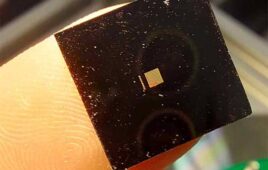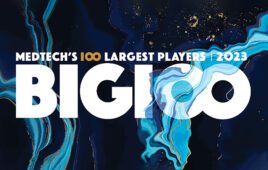 An FDA advisory panel has unanimously agreed that the benefits of Neuronix’s NeuroAD system, intended to slow the progress of Alzheimer’s disease, do not outweigh the risks to patient health.
An FDA advisory panel has unanimously agreed that the benefits of Neuronix’s NeuroAD system, intended to slow the progress of Alzheimer’s disease, do not outweigh the risks to patient health.
Yoqneam, Israel-based Neuonix had applied for de novo clearance of the system. NeuroAD is approved for use in Europe, Australia and Israel, but the FDA panel found that clinical studies did not prove that it is effective.
NeuroAD uses focused transcranial magnetic stimulation (TMS) to stimulate target areas of the brain responsible for cognitive functions impaired by Alzheimer’s disease, according to Neuronix. This stimulation is designed to induce long-term potentiation, which the company said is associated with learning and memory processes, and makes these areas of the brain more receptive to cognitive training. Patients who receive the stimulation simultaneously receive such training.
The FDA had previously made several suggestions for Neuronix to perform before pursuing agency approval or clearance, according to Dr. Mary Jensen, chairwoman of the FDA neurological devices panel. The company chose instead to pursue de novo approval, which would allow it to be considered a predicate device to future submissions.
Neuronix based its application on the results of a U.S. study in which 130 Alzheimer’s patients underwent six weeks of daily treatment with NeuroAD and simultaneous cognitive training or sham treatment without cognitive training. Their cognition was tested at seven weeks and again at 12 weeks, with no treatment occurring after six weeks.
“They did not meet their primary efficacy endpoint and you just can’t get around that,” Jensen told Medical Design & Outsourcing in an interview. “They designed the trial. They came up with what the endpoint would be.”
An FDA report documenting the trial results concluded that there was too much uncertainty about the system’s effectiveness based upon the clinical trial and “the failure to consistently demonstrate clinically meaningful results.”
Neuronix had also given the FDA the results of other, smaller studies that used a different measurement of cognition, a fact that only introduced more uncertainty, according to Jensen, who is also a professor of radiology, neurology and neurological surgery at the University of Virginia in Charlottesville. Panel members said they would have preferred that Neuronix provide patients in the sham arm the same cognitive training as patients in the therapy arm, she added. It wasn’t clear to the panel that the slightly better results demonstrated by patients in the treatment arm at 12 weeks were due to the TMS treatment or the cognitive training, Jensen said.
Neuronix also failed to present postmarket data from patients who have been treated in countries where NeuroAD is approved, she added.
“The data just didn’t support the application,” Jensen said. “The thing that worries me is that the public looks at this as, ‘Well the FDA didn’t approve it.’ The public really needs to look at it as the sponsor did not make their case because the sponsor had opportunity and input from the FDA all along the way. There were things that the FDA recommended they do and they decided not to, and that’s completely on them. It’s the responsibility of the sponsor to prove that their device is safe and efficacious.”
Neuronix officials were unavailable to comment on Jensen’s remarks.
“We appreciate the thoughtful consideration of the neuroAD data as well as the needs of the Alzheimer’s disease community of patients and caregivers,” said Neuronix president & CEO Eyal Baror in a prepared statement. “We are pleased that the committee recognized the safety of the device, but we are disappointed that the panel’s feedback on our clinical studies and data analysis may result in neuroAD not being available in the U.S. in the foreseeable future.
“We plan to engage with the FDA to discuss a path forward to ensure that U.S. patients have the same access to this treatment as is enjoyed by Alzheimer’s sufferers in over 30 other countries,” Baror added.
The FDA must decide on its response to the panel’s recommendation on NeuroAD. Neuronix is currently engaged in a multi-site clinical study of the system in the U.S. and Israel.




